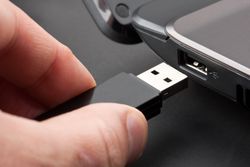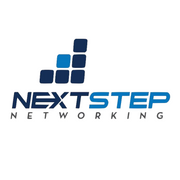
A computer virus infiltrates programs and files with malicious code, replicating itself across systems to infect data and steal sensitive user information. A virus puts all systems on a network at risk, which underscores the critical importance of preventative safety measures and prompt IT support at the first sign of an issue. Below, learn more about some common types of viruses and how to mitigate your risk.
Direct Action Viruses
Direct action viruses attach primarily to either .com or .exe files. When the affected files are installed or executed, the virus automatically starts looking for similar files in the system to which it can attach itself. Because direct action viruses don't noticeably slow down system performance or delete files on your hard drive, they may be hard to spot. One telltale sign of infection is a previously accessible file suddenly becoming unavailable to open. Fortunately, strong antivirus software protection can safeguard against many direct action viruses.
Resident Viruses
Resident viruses don't attach to specific files like direct action varieties; instead, they install on the computer system itself. This makes them much more insidious, as they can spread quickly to other parts of the system, and even when the source is eradicated, they can keep on their destructive path. They are notoriously hard to prevent, and standard anti-malware protection may not be enough. So, be sure to have data backup and recovery procedures in place, and contact IT support as soon as you notice missing files or a pop-up warning alerting you to low disk space.
Boot Sector Viruses
 A boot sector virus attacks the master boot record, which is the beginning portion of any hard disk/diskette that identifies where an operating system is located so that its data can be loaded into the computer's main storage or memory. These viruses are most often found with removable data, such as USB drives and floppy disks, as well as in email attachments. Common symptoms include a system that won't boot up or connect with the hard drive. To prevent a boot sector virus, install antivirus software that scans your removable data, and never open any questionable email attachments.
A boot sector virus attacks the master boot record, which is the beginning portion of any hard disk/diskette that identifies where an operating system is located so that its data can be loaded into the computer's main storage or memory. These viruses are most often found with removable data, such as USB drives and floppy disks, as well as in email attachments. Common symptoms include a system that won't boot up or connect with the hard drive. To prevent a boot sector virus, install antivirus software that scans your removable data, and never open any questionable email attachments.
If you notice any signs of the above viruses, consult an IT support professional. NextStep Networking has been serving the Greater Columbus, Greater Dayton, and Greater Cincinnati, OH, areas since 1986. They offer a wide range of IT support services, including network and cloud management, help desk solutions, and technology consulting and strategizing. Call (513) 792-3400 or visit their website to schedule a consultation with an IT service technician today.
About the Business
Have a question? Ask the experts!
Send your question

